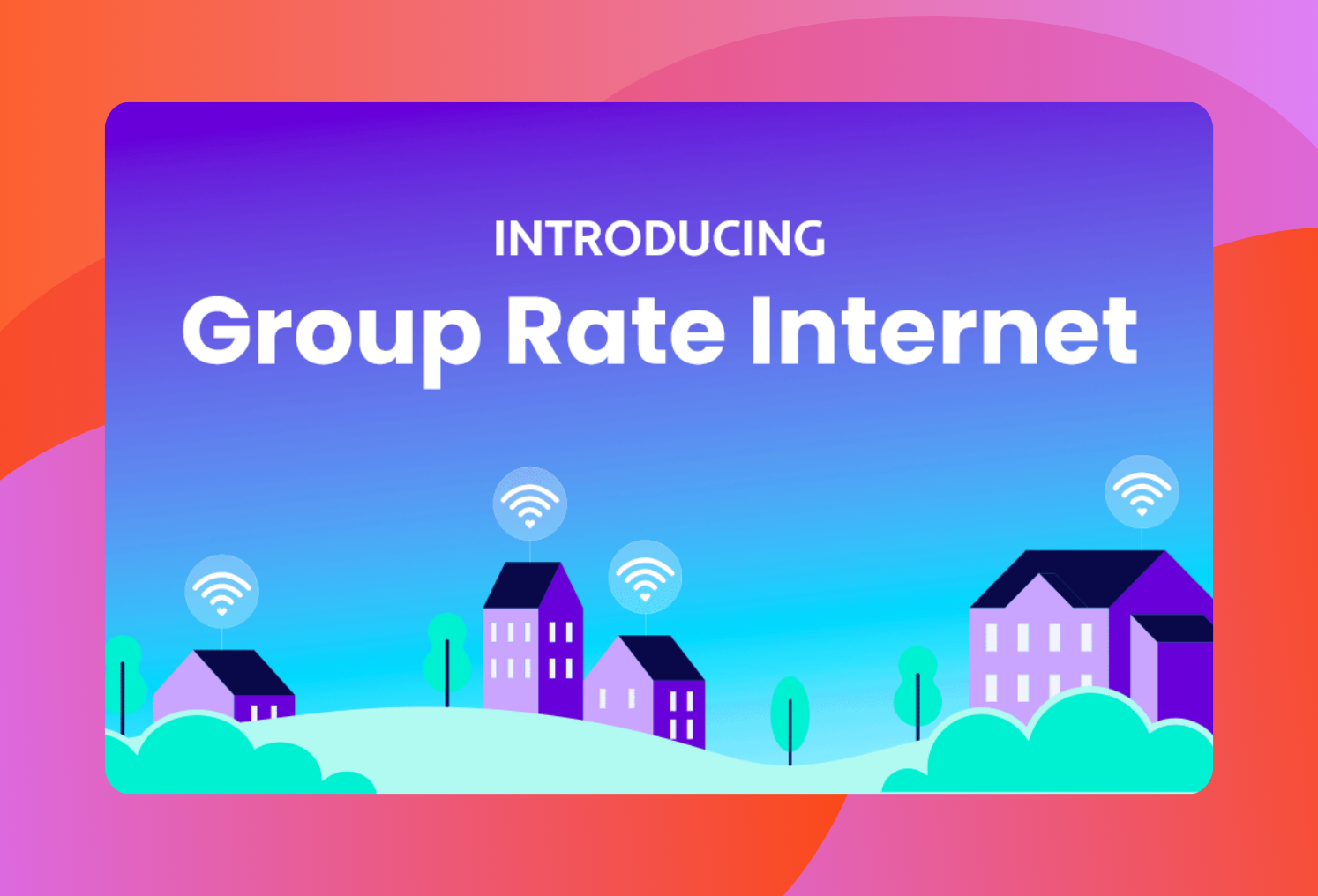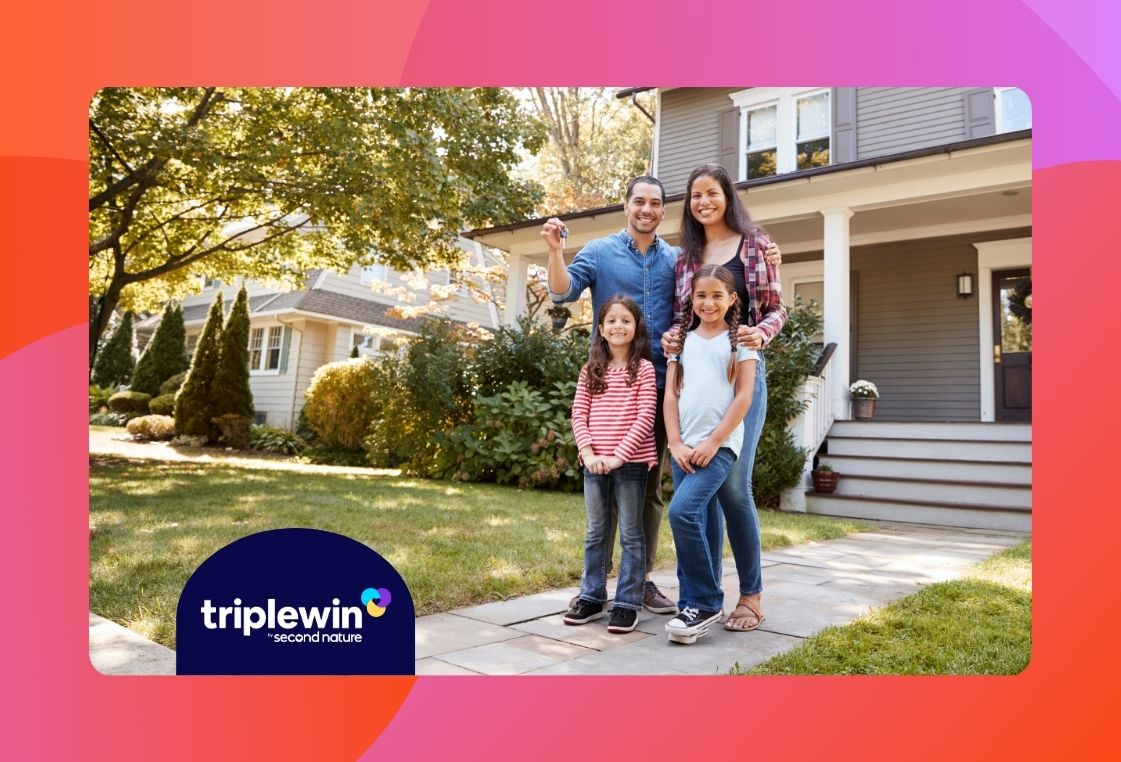
Featured Blog
Introducing Group Rate Internet from Second Nature
At Second Nature, we strive to deliver the best possible experience to residents and property managers alike. We’re always looking for new opportunities to help property managers provide better service, grow their businesses, and give residents homes they want to stay in. Now, with the introduction of Group Rate Internet, we’re able to deliver yet another benefit that residents want, while improving the experience for property managers. What is Group Rate Internet? Group Rate Internet is gigabit-speed˙ internet delivered directly to single-family rental homes, incorporated right into your lease. Thanks to the power of our network, Second Nature has negotiated group rates with some of the nation’s largest internet service providers, and we’re passing the savings on to you. Residents get high speed internet at a discounted rate below what they could get on their ownº, while property managers have a new way to grow their business. Why are we doing this? These days, internet service is a necessity. But until now the process has been time-consuming, frustrating, and expensive. Subscribers face complicated setup and cancellation processes, and when they need to reach customer support, they’re often left on hold. We wanted to bring a better experience to residents and modernize the way they receive internet service. Understanding the single-family market 98% of residents across the United States pay for internet service in their homes. But until now, they’ve struggled with inflexible contracts that don’t align with their lease terms, convoluted phone trees, and expensive hidden fees. Most single-family property managers haven't had the ability to negotiate better rates with ISPs, leaving residents to pay retail prices for essential services. That's where Second Nature comes in. By leveraging our nationwide network, we're able to secure group rate pricing that's lower than what's available on the market—giving property managers a new way to offer high-quality, affordable internet without the headaches of individual negotiations. Difficulties of scattered-site Internet coverage areas can be confusing. When you have properties in multiple areas, they may be serviced by different providers, making it even more difficult to negotiate a one-size-fits-all deal. That’s why Second Nature works with multiple major ISPs to provide maximum coverage, no matter how wide your management area is. Cutting costs and making life easier On average, customers typically pay $80-120 per month for gig-speed internet. Plus they get hit with fees for equipment, setup, early termination, and more. Now, with Second Nature, property managers can provide gig-speed internet, with no installation or cancellation fees, at a fraction of the price that residents are already paying. How does the program work? Like all of the pieces in our Resident Benefits Package, we’ve designed Group Rate Internet to be as easy as possible. From data exchanges to support, we fully manage the process so your teams don’t have any extra work. Integration with property accounting systems to check eligibility Second Nature starts by gathering property details directly from your property accounting system (PAS) to automatically confirm which ISPs serve each property. We confirm eligibility and pass that data back into your PAS, so it’s always available to you. Once a property is marked as eligible in the PAS, you’ll be able to include an internet service addendum in any future leases for that property. Billing operates directly through the PAS, with no extra tools or logins to keep track of. Integrated with the lease cycle When a resident signs a lease that contains the Group Rate Internet Lease Addendum, they’re enrolled into the program, and Second Nature works directly with them to complete setup. We’ll reach out directly to residents to make sure they know how to get set up. If necessary, they’ll schedule professional installation for equipment at a time that’s convenient for them. Because there’s no separate internet contract for the resident, there are also no setup, equipmentª, or cancellation fees, and no struggling to align their utility contract with their lease term. Internet is billed right alongside rent, so residents don’t have an extra monthly bill to manage. Dedicated support We all know the pain of waiting in a phone queue to try to solve a technical issue. That’s why Second Nature offers dedicated phone support for residents using Group Rate Internet. That way residents aren’t calling you for help or getting stuck in phone trees with their ISP. Residents call Second Nature directly, and if they need technical support from their ISP, we can make a warm handoff, making sure they’re on the line with a representative before our team leaves the call. No endless transfers from person to person. Easy transition at turnover When a lease is up and a resident decides to move out, Second Nature provides move-out information to residents. Depending on the ISP, the resident may not even have to return equipment. In most cases, it just stays with the unit, and service is turned off until the next resident moves in and a new lease starts. When a new resident moves in, one phone call is all they need to get their gig-speed service up and running. It’s a simple transition when someone else moves in, all managed by Second Nature. Get started Want to see how you can provide gig-speed internet to your residents? Schedule a demo with a member of our team to walk through Group Rate Internet. ˙ Compared to average nationwide gig speed price of $80-120/mo (source: USA Today) º Up to 1 Gig Internet speed, subject to availability. Internet Service powered by Second Nature is provided through Second Nature's preferred third-party Internet service providers. ª Residents may be subject to fees if equipment is damaged, lost, or stolen.
March 19, 2025
Read more



